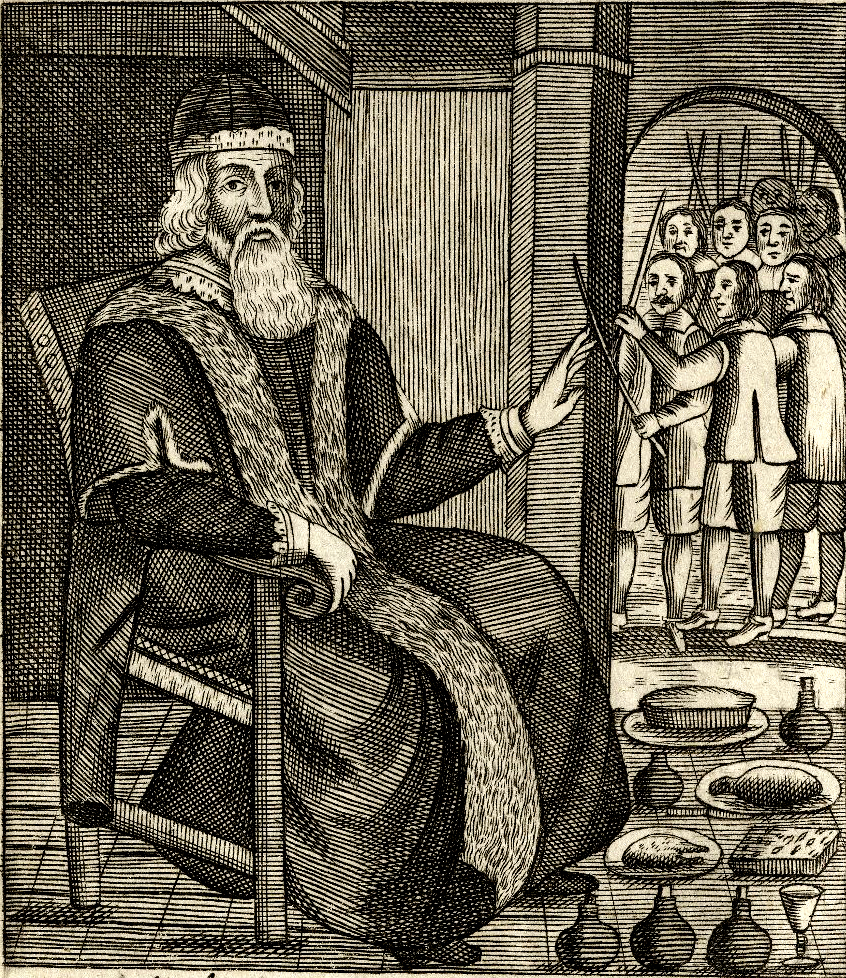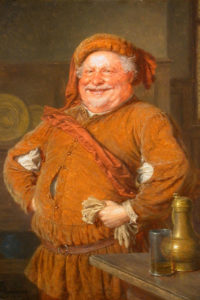This week we got our first look at the trailer for the upcoming Cymbeline movie, starring Ethan Hawke. If you haven’t yet taken a look, here’s your chance:
While the most hardcore of Shakespeare geeks debates the merits of another Ethan Hawke version of Shakespeare (and whether the flame throwers were a good idea), I thought it might be a good opportunity to play catch up with the rest of the world who are scratching their heads and asking, “Cymbeline? Wotzat?” Well, brace yourself. This is not your Mama’s Shakespeare. (Your mother was a high school English teacher, right?)
1) Unless you study these things, you’ve almost certainly never heard of Cymbeline. IMDB shows only 5 filmed productions dating back all the way to 1913 (and counting this yet to be released one). In comparison, I stopped counting Hamlet productions at 30+, and that wasn’t even counting all the variations (Hamlet 2, Zombie Hamlet, and so on). Romeo and Juliet has even more. Many Shakespeare plays have become ingrained in our cultural subconscious to the point where we all recognize various Shakespeare references before we ever sit down to watch the show. You’ve almost certainly seen a balcony scene reference, or Hamlet talking to his skull, or Macbeth’s witches around their cauldron. You’ve almost certainly never seen any Cymbeline.
2) The only quote you’re likely to recognize will also probably make you cry. There’s no “To be or not to be” here, no light through yonder window breaking, no witches chanting around a bubbling cauldron. If you recognize anything that comes out of this play, chances are it is this funeral dirge:
Fear no more the heat o’ the sun,
Nor the furious winter’s rages;
Thou thy worldly task hast done,
Home art gone, and ta’en thy wages;
Golden lads and girls all must,
As chimney-sweepers, come to dust.
Fear no more the frown o’ the great;
Thou art past the tyrant’s stroke:
Care no more to clothe and eat;
To thee the reed is as the oak:
The sceptre, learning, physic, must
All follow this, and come to dust.
Fear no more the lightning-flash,
Nor the all-dreaded thunder-stone;
Fear not slander, censure rash;
Thou hast finished joy and moan;
All lovers young, all lovers must
Consign to thee, and come to dust.
No exorciser harm thee!
Nor no witchcraft charm thee!
Ghost unlaid forbear thee!
Nothing ill come near thee!
Quiet consummation have;
And renownéd be thy grave!
3) It’s not a tragedy, or a comedy, or a history. It’s true that Shakespeare plays had a certain formula you could rely on. Comedies end with a wedding (or, well, the promise of one), and the joke is that tragedies always end with everybody dead. Ok, fine it’s more complicated than that, but you get the idea. Cymbeline breaks all the rules. It’s listed in the First Folio as a tragedy, but hardly anybody dies, and rumor has it that the editors of the Folio may have never actually seen a performance of this one. There’s not really a single central “tragic hero” like you might expect to find. It has a happy ending, but everybody was already married. It’s arguably something of a history, because Cymbeline was a real king who ruled at the same time as another of Shakespeare’s favorites, Julius Caesar. And, like watching a production of Julius Caesar, you’re likely to come away from Cymbeline wondering, “Ok, now, wait, how much of that was actual history and how much did Shakespeare just make up?” In short it’s a little bit of everything, which leads us to …
4) Lazy sitcoms did not invent the “clip show” or “greatest hits,” lazy Elizabethan playwrights did. (Credit to Shakespeare geeks MagpieAndWhale and TheRoaringGirl for those expressions.) Shakespeare had his favorite characters and plot devices, and threw them all into the stew for this one. To borrow from theroaringgirl’s useful summary, “It has star-crossed lovers, missing princes, a manipulative wife, an aging king, a trusty servant, a villainous liar (whose name literally means “little Iago”), a “breeches part,” an idealized pastoral setting, war with Rome, getting lost in wales, a visit from the Gods, a soothsayer, songs, mistaken identity, a death-like sleep, and the most convoluted 5th act reveal ever written.” Orson Welles is credited with the quote, “Now we sit through Shakespeare to recognize the quotations.” If point #2 told us that there’s not going to be many quotations to recognize, the good news is that there’s probably going to be a whole lot of plot you’ll recognize from other plays.
5) Most critics over the centuries have hated it. Samuel Johnson did not want to “waste criticism” on its “unresisting imbecility”. George Bernard shaw called it “stagey trash of the lowest melodramatic order.” Henry James offers, “The thing is a florid fairy-tale, of a construction so loose and unpropped that it can scarce be said to stand upright at all.” I bet Ethan Hawke and friends can’t wait for the latest crop of reviews to come out! (Credit to blog Ten Pages or More for these and more similar quotes.) None of this stops them from calling it “Shakespeare’s undiscovered masterpiece” in the trailer however.
6) It’s a pastoral comedy with a happy ending, done in the style of a flamethrower-wielding motorcycle gang. You did watch the trailer, right? I’m not making that up. As someone else noted, it’s like doing Midsummer Night’s Dream or As You Like It with a motorcycle gang. And flamethrowers.
There’s your lesson in Cymbeline for the day. So – if you weren’t already planning to go see it (because hey, Shakespeare movie!), did I convince you?
P.S. – What do you think of the new font? Too big? I’m trying it out.



